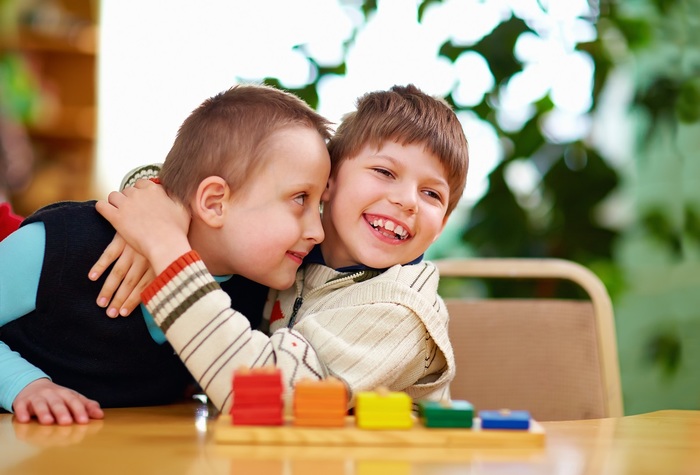Mastering Coping Techniques for Grieving Parents
Mastering coping techniques for grieving parents is a unique journey filled with ups and downs. Acknowledge your emotions, seek support from loved ones and professionals, and prioritize self-care. Embrace rituals that honor your child’s memory and consider therapy for tailored guidance. Connect with others who share your experience, find moments of joy, and nurture your mind and body. This path of healing is a process of self-discovery and healing, leading you to acceptance and peace.
Key Takeaways
- Seek professional therapy for tailored coping strategies and emotional support.
- Connect with others who understand grief for empathy and shared experiences.
- Prioritize self-compassion and self-care for healing and emotional well-being.
- Embrace meaningful rituals to honor and remember your child.
- Find moments of joy and cherish memories amidst grief for comfort.
Understanding the Grief Process

To start coping with the loss of a child, it’s essential to understand the grief process you’re going through. Grieving isn’t a linear journey; it consists of various stages that individuals experience differently.
You may find yourself on an emotional rollercoaster, with moments of intense sadness, anger, denial, and eventually, acceptance. This healing process is unique to each person, and it’s vital to acknowledge and allow yourself to feel all these emotions as they come.
Navigating through the grief stages can be overwhelming, but it’s an important part of your acceptance journey. It’s okay to seek support from loved ones, therapists, or support groups during this time.
Building a Support System
You’re not alone in this journey. Connecting with others who’ve experienced similar loss can provide invaluable support.
Additionally, seeking guidance from professionals can help you navigate through this challenging time with more clarity and understanding.
Peer Connections for Support
Connecting with other parents who’ve experienced similar loss can provide valuable emotional support and understanding during the grieving process. In times of sorrow, knowing that you aren’t alone in your feelings can be incredibly comforting.
Consider joining virtual meetups or online forums specifically designed for parents coping with loss. These platforms offer a safe space to share your thoughts, fears, and experiences with others who can truly empathize with your situation.
Virtual meetups provide an opportunity to connect with individuals facing similar challenges in real-time, fostering a sense of community and solidarity. Online forums, on the other hand, allow for more asynchronous communication, giving you the flexibility to engage at your own pace.
Both options offer a chance to form meaningful connections with people who understand the complexities of grieving for a child.
Professional Guidance for Coping
Consider seeking professional guidance to help build a solid support system as you navigate through the grieving process. Grief can be overwhelming, and having the expertise of a counselor or therapist can provide you with coping strategies tailored to your specific needs. Professionals can offer a safe space for you to express your emotions openly and without judgment, helping you process your feelings and work through the stages of grief.
Through professional guidance, you can learn effective coping strategies to manage the intense emotions that accompany the loss of a child. These coping techniques may include mindfulness practices, journaling, or cognitive-behavioral therapy to help you navigate the complexities of grief.
Additionally, professionals can offer emotional support and guidance on how to take care of yourself while grieving, emphasizing the importance of self-care and seeking help when needed.
Practicing Self-Compassion
Hey there, it’s important to show yourself kindness during this tough time.
Embracing your vulnerability with compassion can help you navigate through your grief more gently.

Kindness Towards Oneself
How can you show yourself kindness and practice self-compassion during this challenging time of grieving as a parent?
It’s essential to prioritize self-care and self-love as you navigate through your healing journey and personal growth. Remember, you’re going through a tough time, and it’s okay not to have all the answers or feel strong every moment. Be gentle with yourself.
Start by acknowledging your feelings without judgment. Allow yourself to grieve and experience the emotions that come with it. Practice self-compassion by speaking to yourself as you’d to a dear friend in need – with kindness and understanding.
Engage in activities that bring you comfort and peace, whether it’s taking a walk in nature, reading a book, or simply resting.
Remember that self-compassion isn’t a sign of weakness, but a strength that allows you to heal and grow. Treat yourself with the same love and care you’d offer to your child.
You deserve kindness during this difficult time.
Embracing Vulnerability With Compassion
Embrace your vulnerability with compassion as you navigate through the grieving process as a parent, allowing yourself the space to feel and heal with kindness and understanding. Accepting your vulnerability isn’t a sign of weakness but a crucial step towards self-awareness and healing.
It’s essential to set boundaries for self-care during this time, understanding when to seek support and when to take time for yourself.
Practicing self-compassion is an essential component of emotional healing. Be gentle with yourself, acknowledging the pain and allowing yourself to experience it without judgment. Treat yourself with the same kindness and understanding you’d offer a dear friend going through a difficult time.
Cultivate a practice of compassion towards yourself, recognizing that grieving is a process that takes time and patience.
Embracing Meaningful Rituals

During the grieving process, incorporating meaningful rituals can provide comfort and a sense of connection to your lost loved one. Personal healing can be nurtured through these healing practices, allowing you to honor and remember your child in a special way.
Creating rituals that hold significance to you and your family can help in maneuvering the intense emotions that come with grief.
Consider establishing a regular ritual, such as lighting a candle every evening in memory of your child, or planting a tree or garden in their honor. Engaging in these practices can offer a sense of routine and purpose during a time of immense loss.
Additionally, participating in activities that your child enjoyed or dedicating a day each year to celebrate their life can be powerful ways to keep their memory alive.
Seeking Professional Help
If you find yourself overwhelmed by grief and in need of additional support, seeking professional help can provide valuable guidance and resources during this difficult time. Therapy sessions offer a safe space to express your emotions openly and receive expert advice on coping with your loss.
A trained therapist can help you navigate the complex emotions that come with grieving, providing psychological support tailored to your individual needs.
During therapy sessions, you may explore different coping strategies, learn how to manage overwhelming feelings, and find ways to honor your child’s memory while also taking care of yourself.
Engaging with a professional can offer new perspectives and tools to navigate the grieving process more effectively. Remember, it’s okay to seek help and prioritize your mental well-being during this challenging time.
Psychological support from a therapist can be an essential part of your healing journey as a grieving parent.
Engaging in Creative Expression
Utilize creative outlets as a means to process your grief and express your emotions in a constructive way. Engaging in art therapy or other forms of creative expression can be incredibly healing during the grieving process.
Art therapy provides a safe space for you to explore your feelings, memories, and thoughts through various artistic mediums like painting, drawing, or sculpting.
Expressing yourself creatively can help you externalize your emotions, making them more manageable and tangible. It allows you to communicate what words sometimes cannot.
Through creative outlets, you can release pent-up emotions, find moments of peace, and discover new insights into your grief journey.
Whether it’s writing in a journal, creating music, dancing, or any other form of artistic expression, find what resonates with you and allows you to channel your emotions in a way that feels authentic.
Connecting With Others Who Understand

Seek out individuals who’ve experienced similar loss and can empathize with your journey as a way to find comfort and understanding during this challenging time. Sharing experiences with others who understand your pain can provide a sense of solace and validation. You aren’t alone in your grief, and connecting with those who’ve walked a similar path can offer a unique form of support.
By connecting with others who understand, you create a space where healing can take place together. Through shared conversations and mutual empathy, you may find a sense of belonging and relief in knowing that your feelings are valid and shared by others. These connections can help you navigate the complex emotions that come with losing a child, offering a safe haven for your grief to be expressed openly.
Finding comfort in the company of those who comprehend your journey can be a powerful coping mechanism. Together, you can heal, grow, and find strength in each other’s presence during this difficult time.
Finding Moments of Joy
Explore the small moments of joy that can bring light into your days as you navigate the heavy emotions of grief and loss. In the midst of sorrow, finding solace in even the tiniest moments of happiness can help ease the weight on your heart.
Cherishing memories of your loved one and the special times shared can be a source of comfort and warmth during this difficult journey. Take time to reflect on the happy moments you shared together, allowing yourself to smile through the tears as you recall the joy they brought into your life.
Simple pleasures like a beautiful sunrise, a heartfelt conversation with a friend, or a warm cup of tea can offer a brief respite from the pain. Embrace these moments of joy, no matter how fleeting they may seem, as they’re gentle reminders that happiness can still find its way into your world.
Nurturing Your Mind and Body
Taking care of both your mental and physical well-being is vital in your journey of grieving and healing. During this challenging time, nurturing your mind and body can provide a sense of grounding and support.
Engaging in mindful meditation can help calm your thoughts and emotions, allowing you to process your grief in a more peaceful manner. Additionally, incorporating active exercise into your routine can have a positive impact on your physical health and overall well-being.
Finding ways to release your emotions is essential in nurturing your mind and body. Whether it’s through journaling, talking to a trusted friend, or seeking professional help, allowing yourself to express your feelings can aid in the healing process.
Remember to prioritize self-care activities that promote relaxation and rejuvenation, such as taking a warm bath, going for a nature walk, or practicing deep breathing exercises.
Frequently Asked Questions
How Can I Cope With Survivor’s Guilt?
When dealing with survivor’s guilt, seeking therapy can provide a safe space to explore feelings. Remember, self-care practices like meditation or exercise can also help you navigate these emotions. Be kind to yourself.
Should I Attend Support Groups Even if I Feel Overwhelmed?
Yes, attending support groups, even if you feel overwhelmed, can offer comfort and understanding. Remember, self-care practices like setting boundaries and seeking professional help can provide crucial support during difficult times. You’re not alone in this journey.
Is It Normal to Feel Anger Towards My Partner?
Feeling anger towards your partner during grief is common. Couples therapy can help navigate these emotions. Utilize communication strategies to express your feelings constructively and strengthen your relationship during this challenging time.
Can Practicing Mindfulness Help With My Grief?
Yes, practicing mindfulness can greatly help with your grief. Mindfulness exercises can provide calming moments during the grieving process. By incorporating coping mechanisms like mindfulness practice, you can navigate your emotions with more clarity and self-compassion.
How Do I Navigate Social Events After My Loss?
Managing social events after a loss can be challenging. Remember, it’s okay to step back if you’re not ready. Communicate your needs and set boundaries. Identify triggers beforehand and have a plan in place to handle them.
Conclusion
Remember, grieving is a unique journey that takes time and patience. By understanding the grief process, building a support system, practicing self-compassion, and engaging in creative expression, you’re taking important steps towards healing.
It’s okay to seek professional help and connect with others who understand your pain. Remember to find moments of joy, nurture your mind and body, and embrace meaningful rituals. You aren’t alone in this journey.
Take care of yourself.

Hey there! 👋 I’m a proud mom and passionate writer, sharing my parenting journey. 📝 Join me as I navigate the ups and downs of motherhood, offering tips, advice, and a sprinkle of humor along the way. 🌟







